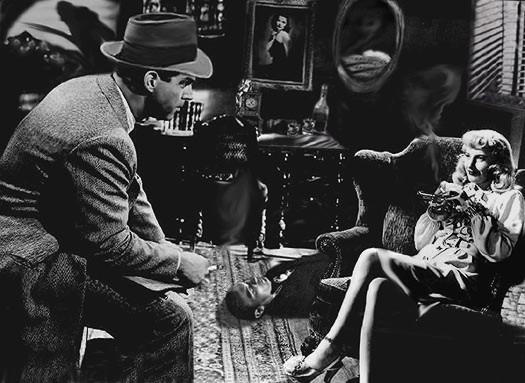
A boy buddy movie about cancer? What was I thinking? Truth is with Joseph Gordon Levitt's million dollar smile really anything is possible. Based on the writer Will Reiser's actual experiences, Adam (Joseph Gordon Levitt), a radio journalist, is diagnosed with a rare cancer in his late 20s and learns from the internet that he has a 50/50 chance of survival. The movie is the unfolding of his life, loves, and friendships post-diagnosis. Levitt's charming ability to make chemo-stry (sorry) happen with just about anyone is what makes this film. Even Seth Rogin becomes somewhat endearing while basking in Levitt's radiant glow. (Okay, I'll stop.) I laughed. I cried. A lot. I still don't know why I, of all people, a paranoid hypochondriac extraordinaire, chose to see this. Was it because of Anjelica Huston (totally great as the cancer stricken boy's suffocating mother)? Was it for Anna Kendrick (just ok as grief-therapist-in-training who falls in love with her patient)? It was probably because at the film festival I try to see things I would never otherwise see. It really is a cute, whacky, perfectly acceptable small film that does succeeds in making cancer funny. Does the world need such a thing? Quite possibly.

Into the Abyss: A Tale of Death, A Tale of Life is the documentary by Werner Herzog about a boy, Michael Perry, on death row in Texas. Again, what was I thinking? It seems I was in pursuit of the grim this year and grim this film certainly is. It's really a horror film in the guise of a documentary. Herzog (whose voice we hear, but who we see only in vague reflection in the glass dividing him from the prisoners) interviews a whole cast of characters somehow involved in Perry's fate--from his partner in crime Jason Burkett, to Burkett's father, to the prison chaplin, to the ex-executioner (my favorite of them all), to Jason Burkett's miraculously pregnant mail-bride who provided the audience with some comic relief through her charming penchant for self-deception. Each of them, as we all are, is trapped inside his or her own terrifying reality. A worthy film I am not unhappy to have seen but it falls short of great documentary in the manner of, say, Errol Morris' The Thin Blue Line or anything by Chris Marker. At the screening, the producer who introduced the film compared it to Truman Capote's In Cold Blood, which is not a stretch (the crime is similar) but Herzog is more interested here in sociology than psyche, which helps him cope with the intensity and insanity of his subject, but makes our experience more voyeuristic than empathetic.



Elizabeth King is in a coma after a boating accident and unlikely to live. Matt King, her husband, discovers from his teenage daughter that Elizabeth was having an affair. They hatch a plan to confront her lover, bringing father and daughter into a new intimacy. In the meantime, King and his cousins are about to decide what to do with a huge chunk of pristine land his family owns in Hawaii, handed down through generations from their royal Hawaiian ancestors. Hence the film's title: The Descendants. The whole state is waiting to see what these descendants will do with their legacy while the audience is waiting to see how King will help his children deal with their mother's impending death. Would I run to see that film? No. But it's the film festival AND the director is Alexander Payne (Election, Sideways) AND it stars George Clooney. I go because Alexander Payne's celluloid rendering of quirky Americana is always surprising, and not only is Clooney Clooney, he has an inclination these days for trying to stretch himself as an actor. Payne's script hovers between sitcom and surreal, nothing which isn't done extraordinarily well on tv, but Payne includes in the mix extended pathos--something few can pull off convincingly in our age of irony and cynicsm. Dying mother in a hospital bed is a very tricky proposition both despite and because of delivering insta-sadness. Payne's project in this film is to redeem the sentimental to its original favorable sense: "Characterized by or exhibiting refined and elevated feeling"--as opposed to its current sense: "Addicted to indulgence in superficial emotion; apt to be swayed by sentiment." (OED) George Clooney, as Payne's chief means to this end, is a joy to watch even if a lot of the time what we are witnessing is a cinema icon struggling not to bury his very ordinary, flawed and vulnerable character under the weight of his own real life megastardom. This quasi-post modern distraction actually worked in a particulary Paynian way to further the film's mundane message i.e. we're all humans who suffer and love and laugh despite our own particular legacy. In the end, Payne and Clooney manage to pull off this strangely heartfelt movie, but not without a lot of help from the pitch-perfect performances from the supporting cast.
Moving from grim reaper to hyperactive stork, the most innovative and engaging film I saw at the festival was 17 Girls,

from French sororal (great word!) writing and directing team Delphine and Muriel Coulin. Beautifully shot in a small French port city in decline, the story is about 17 high school girls who decide to empower themselves by becoming pregnant. Based on the true incident in Massachusetts in 2008, the Coulin sisters imagine the girls' motivations in an intriguing twist on the tropes of teenage pregnancy. Unfortunately, the end was pat and predictable, deflating what was otherwise a mind-bendingly gorgeous and stunningly acted film.
The worst film I saw was Carnage (will post about this anon).
The most purely enjoyable was Nouka Dubi (Boat Wreck)

from Bengali director Rituparno Ghosh. Great plot, astonishing cinematography, stupendous singing, magic melodrama. Bollywood meets Tagore--need I say more?


Nice. Today I saw 17 Girls. Thanx for sharing.
ReplyDelete